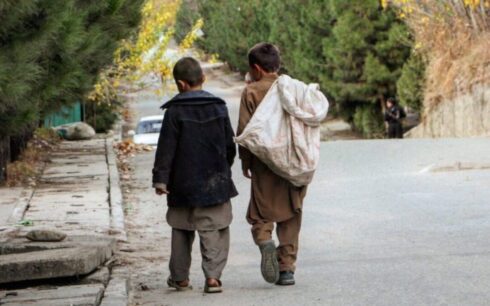Reactions have continued to pour in following the expulsion of Afghan migrants from Pakistan, part of the Pakistani government’s plan to deport more than 1.7 million undocumented Afghan migrants.
Former President Ashraf Ghani, in a recorded voice message shared on social media, conveyed that Afghanistan is no longer the world’s central concern, asserting that the resolution lies in a national dialogue with the Taliban.
In his recent audio message addressing the forced deportation of Afghan immigrants from Pakistan, Ghani struck a more conciliatory tone and appeared to seek engagement with the Taliban.
Ghani characterized the situation in Afghanistan as “grave and enduring,” emphasizing that the world’s attention had shifted away from Afghanistan. He posited that both the immigration crisis and the broader political issues could be resolved through a “national dialogue” involving the Taliban’s participation.
“Recognizing and comprehending the gravity of the situation, this acceptance and understanding should be shared collectively by a significant portion of the nation, the Taliban movement, and the key sectors of the country,” Ghani stressed.
Simultaneously, Mohammad Haneef Atmar, the former foreign minister, issued a memorandum urging the Taliban to transform the forced repatriation of Afghan refugees from Pakistan into an opportunity for national reconciliation.
“The forceful and collective expulsion of Afghan refugees from Pakistan would lead to a humanitarian catastrophe of immense proportions. The leaders of the Taliban have the capacity to turn this calamity into a dignified return and a pathway to national reconciliation. To achieve this, they can garner both national and international support,” Atmar stated.
It is noteworthy that the publication of messages from Ghani and Atmar, apparently implying an inclination to engage with the Taliban, has sparked fresh discussions and divisions among the populace, particularly on social media, given the two leaders’ roles in the country’s peace efforts, war, and politics in recent years.

Responding to Islamabad’s stringent treatment of Afghan migrants, Atmar implored the Taliban to seize the opportunity to foster “national reconciliation” amid the forced deportations.
“You held five ministerial positions, served as a national security adviser, and played critical roles for two presidents. One of them facilitated the Taliban’s arrival in Kabul through an agreement, while the other provided the Taliban with refuge in the Arg and Kandahar by fleeing. Please ponder your prescriptions for salvation!” remarked Malek Setiz, an international relations expert.
“After two years and three months, Mr. Atmar and Mr. Ghani are shamelessly jesting about the woes of the Afghan people, all the while advocating cooperation and dialogue with the Taliban,” criticized Tarnam Saeedi, head of the Afghanistan Women’s Political Participation Network.
In the international context, it appears that the responses from Afghanistan’s political figures, including the Taliban, have not yet influenced Islamabad’s decision to forcibly deport Afghan migrants. The process continues amid protests and criticism.
Naeem Poyish, a former diplomat, characterized Pakistan’s policies towards Afghan immigrants over the past four decades as rooted in coercion and exploitation. He noted that Pakistan aimed to portray itself as a victim of war and migration to gain financial support for the Afghan governments that operated over the same period.
As of the time of this report, the Taliban had not issued an official response to the messages from the former Afghan president and Atmar. Zabihullah Mujahid, the Taliban’s spokesman, also had not responded to inquiries from Amu regarding this matter.





